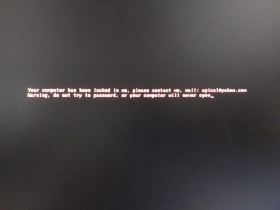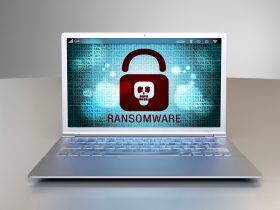In 2018, the average ransomware demand was $1,077 and 10% of all ransomware demands were over $5,000. Unfortunately, these ransom amounts continue to grow. If you want to protect your files and cash, learn how to prevent ransomware attacks before it’s too late.
What is Ransomware?
Ransomware is a type of malware. Though there are several variations, most attacks encrypt a victim’s files. The hacker then demands a ransom, typically payable in cybercurrency, to restore data and files.
Ransomware can find its way onto your device in several ways. The most common is through a phishing attack. For example, a victim may open an email that seems to be from a trusted source. The email includes an attachment that they download, only to find out the attached document installed ransomware onto their computer. Their files are now being held hostage by the attacker who is demanding a ransom payment.
Most forms of ransomware include social engineering tools that trick victims into providing hackers with administrative access. This allows them to get into your files without being detected. More aggressive forms of ransomware can exploit security vulnerabilities and attack devices without acquiring special access. Experts expect ransomware to only become more sophisticated as hackers evolve just as quickly as technology.
What Can Ransomware Do?
As already mentioned, ransomware typically encrypts a victim’s files and holds them hostage until a ransom payment is made. But it’s not always this black and white. There are several things ransomware can do once it takes over a device, depending on its type. Take a look at a few different types of ransomware and what they can accomplish during an attack.
- Crypto – Crypto ransomware can go undetected very easily and spread like wildfire through a network, encrypting files and demanding ransom payments along the way. A great example of this type of ransomware is the 2017 WannaCry attack.
- Scareware – Scareware poses as an antivirus. After running a fake scan on your device, you’ll be greeted with either pop-ups demanding payment or a locked computer.
- Lockers – Lockers take a cyber attack a bit farther by completely locking you out of your computer, not just encrypting your files. If your device is infected, you won’t be able to access software or applications.
These are just some types of ransomware and hackers are coming up with new methods all the time. That’s why it’s best to remain educated and vigilant about preventing ransomware attacks.
If you do fall victim to a ransomware attack, there are certain steps you should take immediately. If you’ve been lucky enough to avoid them so far, learn how to start protecting your files and data next.
How to Prevent Ransomware Attacks
Hackers flock to ransomware because of its potential for high payouts and minimal consequences. The attacks aren’t slowing down and will likely increase in frequency and sophistication. Global ransomware damage is expected to hit $20 billion by 2021.
If you haven’t been taking steps to prevent ransomware attacks, there’s no better time to start than right now. Start with these helpful security tips.
- Only install software you trust. Keep all other programs and applications up to date. Updates often include patches that close security holes hackers might take advantage of.
- Before you pay a ransom, explore all your options. Just because you pay a hacker doesn’t mean they have to release your data. You could end up playing a game you can’t win.
- Don’t open email attachments from people you don’t know. Email is a popular method hackers use for a ransomware attack.
- Conduct regular backups, either to an external drive, cloud storage, or both. Should an attack encrypt the files on your device, you’ll still have access to your data.
- Install antivirus software on all your devices. One option is Avira Free Security, offering protection from a variety of malware types, including ransomware.













